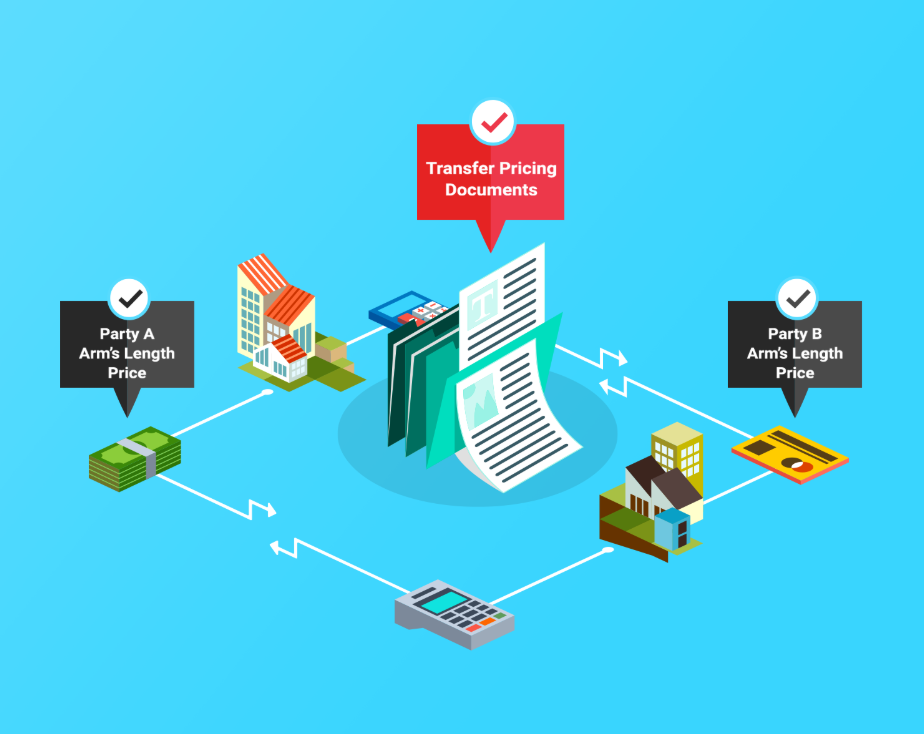Transfer Pricing Advisory Services in Malaysia
The concept of transfer pricing was first introduced into the Malaysian tax legislation effective from 1 January 2009 with the enactment of Section 140A of the Income Tax Act, 1967, as well as the gazettement of the Income Tax (Transfer Pricing) Rules 2012 (“Malaysian Transfer Pricing Rules”).
However, many Malaysian businesses, especially Small and Medium Enterprises (“SMEs”), have the wrong perception that the Malaysian transfer pricing compliance requirements are only applicable to transactions between multinational enterprises (“MNEs”) with cross-border transactions.
We offer professional transfer pricing advisory services across Malaysia, with a strong focus on clients in Kuala Lumpur and Seremban to ensure full compliance and documentation support.

What is Transfer Pricing?
All you need to know…
Transfer pricing is the method of setting prices for goods, services, and intangible assets exchanged between related entities or companies under common control.
Associated parties refer to entities that control one another or are under shared ownership or management — such as subsidiaries, branches, or head offices.
All related-party transactions (also known as “controlled transactions”) must follow the arm’s length principle — meaning prices should reflect what unrelated parties would charge in similar circumstances.
Businesses in Kuala Lumpur, Seremban, and throughout Malaysia must ensure that their transfer pricing practices align with these standards to avoid compliance issues.

What are your Transfer Pricing obligations?
It is a statutory requirement for taxpayers to prepare a contemporaneous comprehensive set of transfer pricing documentation (“TPD”) (e.g., Full TPD) annually under the Malaysian Transfer Pricing Guidelines 2012, provided that:
| No. | Nature of Transactions | Threshold |
|---|---|---|
| 1. | Non-financial transactions | Annual gross income exceeding RM25 million and total related party transactions exceeding RM15 million per annum; or |
| 2. | Financial transactions | Provision of financial assistance exceeding RM50 million. |
There is no de minimis rule in Malaysian Transfer Pricing legislation. However, taxpayers are allowed to prepare documentation that is less extensive, i.e., Limited TPD, if they do not exceed the above financial threshold. The obligation to prepare contemporaneous TPD is based on each year of assessment to demonstrate that controlled transactions are conducted according to the arm’s length principle.
However, many Malaysian businesses, especially Small and Medium Enterprises (“SMEs”), have the wrong perception that the Malaysian transfer pricing compliance requirements are only applicable to transactions between multinational enterprises (“MNEs”) with cross-border transactions.
What is the Transfer Pricing landscape for year 2021?
The Budget 2021 announcements, which have gazetted the law under the Finance Act 2020, have tightened the Transfer Pricing compliance requirements in Malaysia effective from 1 January 2021 with the introduction of the following provisions:
| No. | New Law/ Revised Guidelines | Tax Implications |
|---|---|---|
| 1. | Section 113B: Failure to furnish contemporaneous TPD | A penalty of between RM20,000 and RM100,000 for failure to submit the TPD. |
| 2. | Section 140A(3C): Surcharge on the transfer pricing adjustment | A surcharge of up to 5% of the total transfer pricing adjustment is imposed whether or not the adjustment results in additional tax payable. |
| 3. | Section 140A(3A) & (3B): Power to disregard structure in a controlled transaction | Grants the IRB the power to make transfer pricing adjustments to reflect arm’s length economic and commercial reality. |
| 4. | Paragraph 11.2.3 of the Malaysian Transfer Pricing Guidelines: Period to submit TPD (updated on 2 Feb 2021) | The period to submit the TPD has been shortened from 30 days to 14 days upon request by the IRB during a tax audit. |
With the introduction of penalties for non-compliance with TPD requirements, the obligation to prepare TPD is absolute and mandatory, with no distinction between large and small or medium-sized companies.
The penalty for TPD non-compliance is significant, as it gives the IRB the authority to penalise a taxpayer even before the audit process begins if the taxpayer fails to furnish the TPD for the relevant year of assessment on time. Furthermore, a 5% surcharge will be imposed on any transfer pricing adjustment, regardless of whether the taxpayer is loss-making or tax-exempt, for non-compliance with the arm’s length principle.
Common Transfer Pricing Mistakes to Avoid in Malaysia

The Inland Revenue Board (IRB) may scrutinize the following practices, which are frequently seen in businesses across Malaysia, including those in KL and Seremban:
- Transacting below market value
- Non-standardised pricing policies
- Providing free-of-charge services
- Providing interest-free loans or advances
- Adopting the cost sharing or cost reimbursement approach
- Charging based on a pre-determined percentage on sales
- Frequent related-party transactions
How can IBS help?

IBS offers specialized transfer pricing advisory services for businesses across Malaysia, with core support for companies in Kuala Lumpur and Seremban.
Our team helps you align operations with local regulations, identify compliance risks early, and prepare documentation that meets IRB requirements.
We support clients with:
- Transfer pricing planning
- Full or limited documentation preparation (TPD)
- IRB audit rea
- Home
- Transfer Pricing Advisory
